Estimated reading time: 27 minutes
Retiring to Spain offers many expats a warmer weather, a more relaxed lifestyle and a cheaper cost of living than they can expect in most other European countries.
No wonder 6 million foreigners choose to call Spain home – one in eight of the population of 48 million.
Although the British make up one of the largest foreign contingents, more than double their number come from Romania and Morocco. At the same time, the country is also popular with expats from Latin America, thanks to Spain’s historical ties with the region.
Around 312,000 British expats have swapped living in the UK for a move to Spain, making the country the most popular destination for Britons in Europe.
Not all are retired – around a third have moved for work.
But changing countries can come with a host of legal and cultural hurdles to cross.
This guide aims at giving help and advice to those retiring to Spain and giving some insights and tips about how to make the change.
Don’t forget to check the latest information in the UK and Spain before your departure, as the rules for retiring to Spain are likely to change before December 31, 2020, when the European Union Withdrawal Agreement and transition period end.
Table of contents
- How many British Expats Retire in Spain
- Where British expats retire in Spain
- First things to do when moving to Spain
- Staying up to date
- Brexit, Expats and the UK leaving the EU
- Visas and Residency for British expats in Spain
- How to register as Spanish resident
- Healthcare in Spain
- UK Passports and EU Passports
- UK Driving licences in Spain and Car Insurance
- Money and Pensions when Retiring to Spain
- UK Personal Pensions and State Pensions
- Pensions and cost of living increases
- What are trivial commutation rules?
- What about small pot defined contribution UK pensions?
- My workplace pension is locked until I’m 60 or older
- Sterling or the Euro?
- Can I top up my state pension in Spain?
- Can I claim a Spanish state pension without any making any contributions?
- How Much Does Living in Spain Cost?
- Finding the Best Expat Tax and Financial Advice
- Financial Adviser Qualifications to Look For
- Tax Residence in Spain, Are you Really an Expat?
- The Importance of Tax Residence
- FATCA, CRS and HMRC
- Claiming state benefits
- Expats Voting in Spain
- Related Information
How many British Expats Retire in Spain
The estimated number of British citizens that live in the EU based on data from 2017 is 784,900. The number of British citizens that live in Spain from that data is 293,500, which is the largest portion compared with the other EU countries.
Age distribution of British citizens living in Spain
From the table above, Spain has the largest amount of UK expats compared to the other EU countries.
Below the table shows the age distribution of those expats
Spain not only has the largest UK expat population but also has the highest number of expats aged over 65 years. Over 40% of UK expats in Spain are over the age of 65.
Where British expats retire in Spain
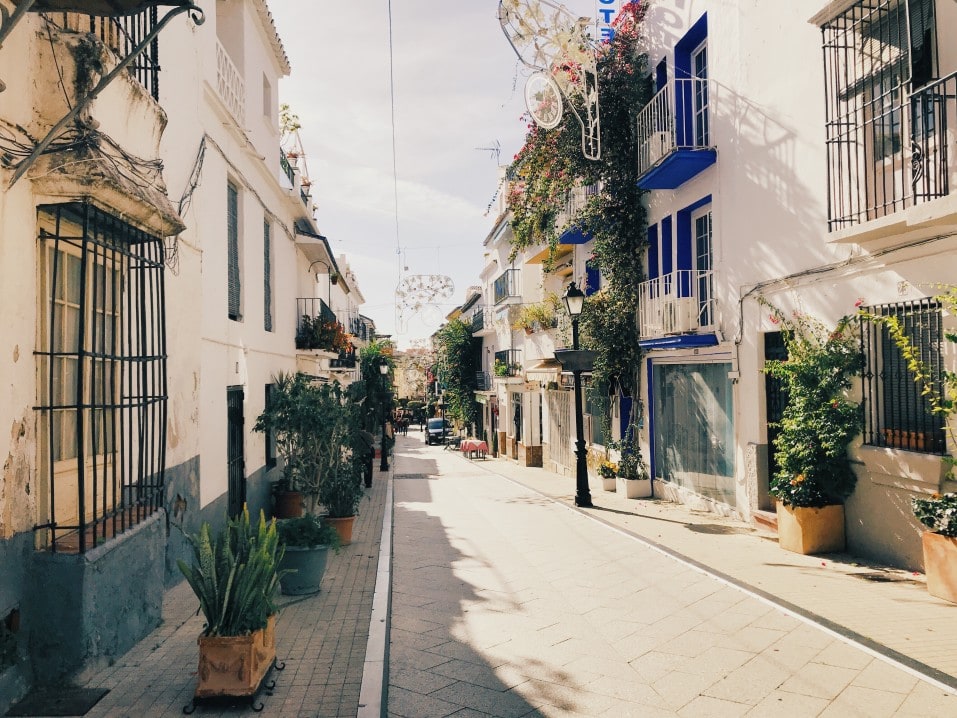
For the British, Spain is a sunshine retirement destination with thousands flocking to the Mediterranean resorts that line the Costas.
But Spain can offer much more, with a varied climate ranging from the almost tropical hotspots on the coasts to cooler mountains in the north, huge tracts of open countryside and vibrant cities, like Barcelona and Madrid’s capital.
Don’t forget the party islands of the Balearics – Majorca, Mallorca and Ibiza – or the popular Canary Islands, nestling 80 miles in the Atlantic off Africa, where warm winds from the Sahara guarantee all-year sunshine and warm temperatures.
When in Spain, most Brits congregate along the built-up Mediterranean Costa Blanca near Valencia, according to official statistics published by the Spanish government.
Malaga, Marbella and Torremolinos resorts along the Costa del Sol in Andalusia, along the south coast, are the next most popular locations.
Other popular areas include the Costa Dorada and Costa Blanca near Barcelona, in Catalonia.
AROUND 312,000 BRITISH EXPATS HAVE SWAPPED LIVING IN THE UK FOR A MOVE TO SPAIN, MAKING THE COUNTRY THE MOST POPULAR DESTINATION FOR BRITONS IN EUROPE.
Where Brits live in Spain
| Location | Population |
|---|---|
| Valencian Community | 82,214 |
| Andalusia | 63,472 |
| Canary Islands | 24,742 |
| Balearic Islands | 14,744 |
| Catalonia | 13,747 |
| Murcia | 9,708 |
| Other regions | 9,564 |
| Madrid | 6,650 |
First things to do when moving to Spain
Just making the move from Britain to Spain is a big deal. Organising the packing of your furniture and personal possessions in one country and then successfully arranging to have everything arrive undamaged and on time in another is a huge task.
But some official personal paperwork needs completing at both ends to make the move run smoothly.
The removal firm will hopefully handle shipping and transport, including the necessary customs documents.
Here’s a list of what else you need to do:
Making your UK departure official
- Tell your local council and give them your forwarding address
- If you are paid benefits, contact the local office and arrange to have them stopped or paid in Spain
- Learn how to claim your UK state pension while living abroad
- Tell HM Revenue & Customs (HMRC) you are moving to Spain and complete a Form P85 and file a P45 if you have one
Three must-do things on arriving in Spain
- Register as a resident
- Register for healthcare
- Swap your UK driving licence for a Spanish one
Staying up to date
Keeping in touch with news and information that can affect your life as a British expat is important.
To help, the British government has an active social media network that you can easily plug into, while several free and paid-for online communities can offer a lifeline if you need one.
Sign up for British government email alerts about living in Spain
Follow posts from the British embassy in Spain on Facebook or Twitter
For a full list of English language newspapers for expats in Spain, check out World Newspapers
Brexit, Expats and the UK leaving the EU
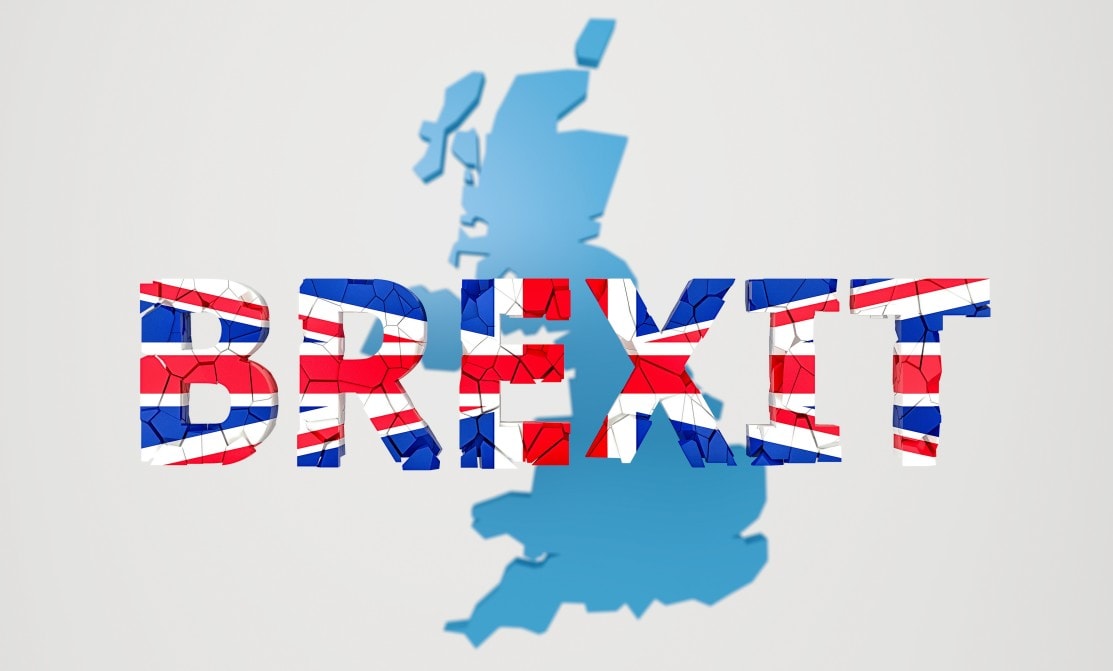
Britain’s Withdrawal Agreement with the European Union lays out the rights of British expats in Spain.
The agreement covers the transition period, which lasts until December 31, 2020.
British expats can continue living and working in Spain mostly under the same terms as before the agreement on January 31, 2020.
Expats who are already living in Spain can continue to carry on under the same terms, but from January 1, 2021, the rules will change for new residents.
These rules are fluid and subject to ongoing negotiations that will be published nearer the end of the transition period.
Registering as a resident is vital for expats who want to stay in Spain when the transition period ends, and Britain is no longer part of the EU.
Visas and Residency for British expats in Spain
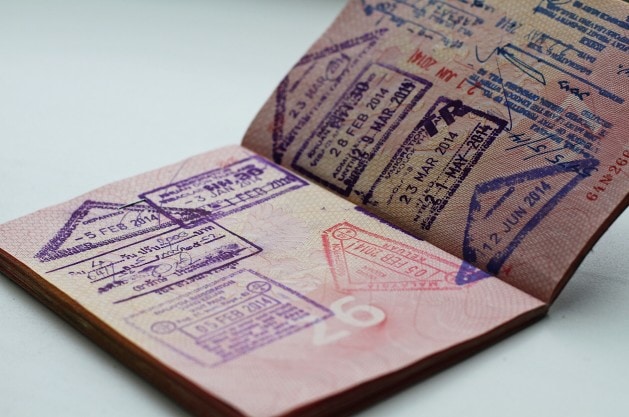
Any expat who wants to carry on living or working in Spain for more than three months must register as a Spanish resident.
Do I need a visa to live in Spain?
British citizens do not need a visa to visit or live in Spain, but you must hold a British passport to enter and exit the country.
If you have the right to live in the UK, then you can move to Spain, but some British nationals will need check whether they have the correct requirements for entry with a Spanish embassy.
The end of the transition period may see these rules change.
How to register as Spanish resident
Expats need an NIE number (Número de Identidad de Extranjero) to do anything official in Spain, like renting, buying a home, opening a bank account, or buying a car.
You can register In person once in Spain at an immigration office (Oficina de Extranjeros) or police station close to where you live.
You cannot just turn up, you need to make an appointment online up to a month in advance. You may need help as the web site is in Spanish.
The documents you need for a registration appointment include:
- Passport
- Two signed and completed Form EX-18
- Proof of employment if you work
- Proof of valid medical insurance
- Proof you have the financial means to support your family if you are retired
Once approved, the immigration office will issue an ID card or certificate of residence.
Healthcare in Spain
It’s worth noting the World Health Organisation regularly highly ranks state healthcare in Spain
Once a retired expat has registered as resident in Spain, they gain access to state healthcare on the same basis as Spanish nationals – that means free services are free to expats, but some services are paid for, like prescriptions under the NHS in the UK.
To access medical care, expats must register. Registration is separate to signing up as a resident.
Retired expats receiving the UK state pension should ask for a Form S1 from NHS Overseas Healthcare Services before leaving the country.
To apply, phone the service on +44 (0)191 218 1999 between 8am and 6pm Monday to Friday or between 9am and 3pm on a Saturday.
Then, take the form to your local social security office (Insitituto Nacional de la Seguridad Social INSS) in Spain, where a social security number and medical card will be issued to you.
You need the number and card to register with a doctor.
After making Spain their main home for five years or more, expats can apply for permanent residency, which comes with access to state healthcare without a Form S1.
Healthcare outside Spain
If you have a S1 from the NHS, you can apply for a UK EHIC (European Health Insurance Card) to cover medical treatment while you are outside of Spain. You should also take out travel insurance for the trip abroad.
Holding a S1 also allows expats to free healthcare while visiting the UK.
Travel insurance or an EHIC will not cover medical treatment for expats living in Spain.
If you do not have a S1 as a permanent resident to qualify for state healthcare in Spain, you need a TNE (Tarjeta Sanitaria Europea), which is the Spanish equivalent to an EHIC, for travelling abroad.
If you want to find an English-speaking doctor in Spain, check out listings posted online by the UK government.
Private healthcare
Just like the UK, expats can top up their state healthcare with private medical insurance, although this is not mandatory.
UK Passports and EU Passports
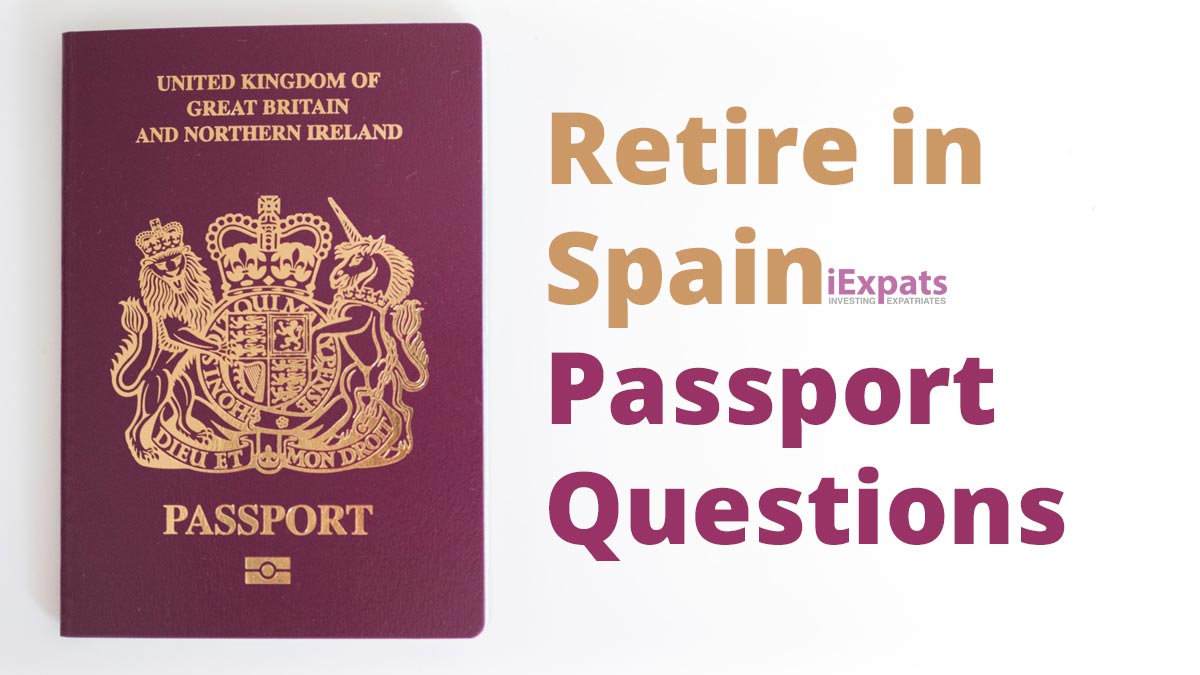
Current passport and diving licence rules stay the same during the transition period.
A UK passport offers free travel within Spain and the European Union until transition ends on December 31, 2020.
Update travel rules for British expats will be published before then.
You can apply for a new passport online from Spain if your old one is due to expire.
Have a digital photo ready. The image should be in colour, correctly focused, uncropped and measuring 750 pixels high x 600 pixels wide. The file size should be between 50KB and 10MB.
Take a close-up head-and-shoulders image with no one else or any objects in the picture. Make sure the background is plain and you stand out clearly.
You will also need your old passport and a card for online payment. A standard adult UK passport costs £75.50 online.
You can read our guide for more details about managing British passports requirements as an expat.
UK Driving licences in Spain and Car Insurance
Transition period rules apply to driving licences in Spain.
Until December 31, 2020, UK driving licences are valid in Spain, providing they are also valid in the UK.
However, anyone retiring to Spain should apply for a Spanish driving licence.
The Spanish licence is valid for short trips to the UK.
The DVLA in the UK will not replace lost or stolen licences, nor renew one that has expired. To make an application for a Spanish licence without taking a test, expats need to ask the DVLA for a ‘certificate of entitlement’ in Spanish.
Spanish driving laws demand cars are insured (seguro a terceros) to a basic level, like the UK third-party, fire and theft policy.
If you want comprehensive car insurance with extra features, ask for seguro a todo riesgo.
Expats taking a car from Britain to Spain need to follow some different rules of the road:
- Drivers should wear a reflective jacket when getting out of a car on a busy road or hard shoulder outside a town or city
- Cars should carry two warning triangles and deploy them if the car stops on the road or hard shoulder
- Devices that warn of speed cameras are banned
- If you wear glasses or contact lenses, you should carry spares in the car
As a registered resident or after spending 6 months living in Spain, expats should register any vehicle from the UK
Do I have to pay vehicle import tax in Spain?
You can import your vehicle to Spain but will have to pay the relevant taxes for doing so, though in some cases you may be not liable from some of them.
Among the taxes are a registration charge, road tax and VAT.
The Agencia Tributaria website has more details.
I must pay a driving fine in Spain
Pay traffic fines, including speeding and parking tickets, online at the Direccion General de Tráfico website.
Should you need to dispute or appeal a fine, then you need to contact the Provincial Traffic Office, or Jefatura Provincial de Trafico, and take the matter up with them.
Money and Pensions when Retiring to Spain

Managing money on a fixed budget is always a challenge. Retiring to Spain means setting a budget that covers the bills and leaves some money for fun and unforeseen expenses.
It’s important that any budget is realistic. Be honest about your income and expenses but don’t forget those hidden costs, like online subscriptions, bank and card charges.
They may not seem a lot, but they can quickly build up to take a chunk out of your spending plans.
Sensible expats also set aside some money for emergencies, like repairing the car or replacing the boiler.
The good news is that retiring to Spain and living like a local is much cheaper than visiting the country as a tourist.
You get to know the best neighbourhoods to live and the places to shop, drink and eat without paying a tourist premium.
UK Personal Pensions and State Pensions
Pension providers will continue to pay pensions and the state pension to retirees living in Spain.
If you have paid social security in Spain or another European Union country, you may be entitled to a state payment from them.
You need to speak to the pension authority in each country where you have paid social security to check your entitlement.
In Spain, that’s the Instituto Nacional de la Seguridad Social (INSS) if you worked in Spain
From time to time, the UK Department of Work and Pensions will check on you and may ask for a life certificate.
A witness must sign the form to prove your identity – these are the same people who can witness a passport photo.
Complete and return the form as soon as you can. Payments are suspended if you miss the deadlines.
Pensions and cost of living increases
Inflation affects the spending power of retirees depending on which sort of pension they have.
- Public sector or civil service pensions are index-linked, which means the payment increases each year in line with the cost of living. The annual rise in UK inflation sets the increase.
- The state pension is index-linked for expats in Spain. The triple-lock applies until April 2022 and puts up the monthly payment each year at the highest of 2.5%, the annual rise in wages or the annual rise in inflation
- Private pensions, like a SIPP, are not index-linked and pay a monthly amount that depends on how much the underlying fund is worth. These are often termed ‘defined contribution’ pensions
- Cost of living increases for workplace pensions can vary. Older defined benefit schemes pay a guaranteed income that is index-linked, while newer defined contribution schemes are like private pensions and do not rise in line with inflation
- Expats who are part of the Qualifying Recognised Overseas Pension Scheme (QROPS) have a defined contribution scheme that is not index-linked
Don’t forget that UK ‘trivial commutation’ rules still apply even if you retire to Spain if you only have one or more small funds worth less than £30,000.
What are trivial commutation rules?
Five rules apply to trivial commutation:
- They mainly apply to defined benefit pensions. These are typically workplace pensions with a guaranteed retirement income
- The retirement saver cannot draw on a pension until they are 55 years old unless strict ill-health conditions apply
- The total amount of small pot pensions cannot be more than £30,000
- A time limit applies. You have 12 months to drawdown every small fund after taking the first lump sum
- The all-or-nothing rule means you do not have to drawdown every small pot pension, but if you take any money from a pension, you must take all the cash in the fund
What about small pot defined contribution UK pensions?
The trivial commutation rules are different for defined contribution pensions – typically these have retirement income based on fund value rather than a guaranteed payment.
For personal pensions, you can cash in up to three funds worth no more than £10,000 each.
The all-or-nothing rule still applies, but you can take the funds in stages under flexible access rules.
Billions of pensions are unclaimed and many of these belong to expats, learn how to find your lost UK pension.
My workplace pension is locked until I’m 60 or older
You can speak to an IFA about switching to a defined contribution scheme to access the money from the age of 55 under flexible pension rules
Sterling or the Euro?
One problem with budget planning is that retirees are paid pension incomes in British Pounds and need to convert their money into euros. Transferring from one currency to another inevitably comes at a cost and the amount fluctuates as exchange rates change daily.
Switching currencies through a bank costs much more than taking a fixed rate deal with a specialist exchange service and offers a more certain monthly income.
Most expats can have their UK pensions and state pensions paid directly into a local bank account in Spain.
QROPS are slightly different as expats can choose to have the payment into a local bank in euros, cutting out the foreign exchange costs.
Can I top up my state pension in Spain?
Expats can make voluntary contributions in either Spain or the UK for topping up a pension entitlement. For information on this, contact HMRC, while in Spain you’ll need to get in touch with the Tesorería General de Seguridad Nacional (TGSS).
Can I claim a Spanish state pension without any making any contributions?
This is a benefit to help people on a low income and aged at least 65 wanting to claim a non-contributory pension, or a Pensión de jubilación no contributiva.
However, claimants must have been living in the country for more than 10 years, aged between 16 and their retirement; with two of those years prior to the claim.
There is more information available about benefits, though it’s only in Spanish, from town halls and local social services offices.
How Much Does Living in Spain Cost?
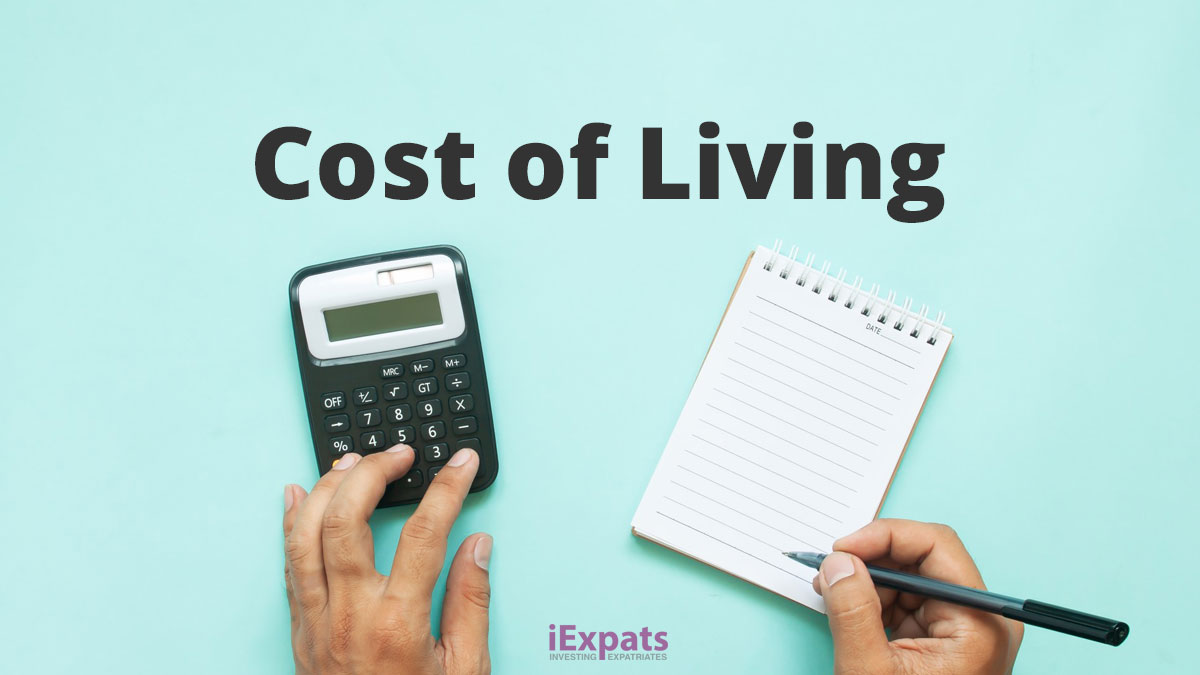
The bills retirees pay in Spain are the same as they would pay in the UK, but often cheaper.
Property tax called IBI is like UK Council Tax and is based on a home’s value, like the UK tax. The amount due is much less – on average around 25% of that for a comparable home in the UK.
Electricity, gas and water bills are on a par with those back home.
Broadband and satellite TV are more expensive.
Factor air conditioning into the electricity bill.
If you have a swimming pool, running and cleaning costs can be expensive.
Villas or apartments that are on a golf or resort complex come with service charges for the communal areas, so check them out before you rent or buy.
Out shopping, many British brands come with a premium price, but the Spanish equivalents are often just as good and much cheaper.
Eating out is less expensive, too. Budget around €15 each for a three-course meal.
Source free, detailed and up-to-date cost of living information from the Numbeo web site. The service lists data posted by expats and covers costs and data across several categories, including lifestyle spending, shopping prices, the cost of renting and buying property and healthcare.
Finding the Best Expat Tax and Financial Advice
If you want to make the most of your money when retiring to Spain, you need to take professional financial advice in Spain.
An independent financial adviser can explain your options and offer suggestions you probably have not considered. An IFA can also look at ways to help you pay less tax on savings and investments you may have in the UK as well as in Spain.
Another aspect you need to consider is estate planning, which covers making wills in the UK and Spain and protecting your assets from wealth tax.
Estate planning also ensures your wealth goes to the people who are important to you – and that’s important in Spain where inheritance rules are very different from those back home.
How Financial Firms Are Regulated in Spain
Professional IFAs in Spain are registered with a regulator. The official regulators in Spain are:
- The Dirección General de Seguros y Fondos de Pensiones (DGSFP) supervises insurance and pension advisers.
- The Bank of Spain monitors banks, credit card companies and other finance houses
- The Comisión Nacional del Mercado de Valore (CNMV) deals with brokers and companies accessing investment markets.
Many British IFAs have offices in Spain that deal with expats under ‘passporting’ rules.
Passporting means a qualified and regulated financial advisor in one European Union country can trade in another EU country without re-registering with the local regulator.
British IFAs register with the UK Financial Conduct Authority, which sets professional standards they must follow.
Financial Advice is not just for the wealthy
Everyone benefits from professional financial advice however wealthy they are.
It’s impossible to retire to a new country and expect to become an instant expert on pensions, savings, tax and investments.
Good financial advice should help you make better decisions about your lifestyle, spending and
For most people, retirement is about the best way to spend your savings rather than how to increase what you have in the bank.
Independent v tied Financial Advice
Not all financial advice is the same. Not all advisers are equal.
Advisers come in three types – independent, multi-tied or tied.
Surprisingly, IFAs can be multi-tied, so establishing the type of advice on offer is important.
All advisers should start with a factfind. This questionnaire aims to benchmark your wealth, identify any needs, and lay out your long-term financial goals. The factfind also considers how much investment risk you are ready to take.
From here, independent financial advisers – commonly called IFAs or international IFAs –offer whole-of-the-market advice because they can talk about the products of any provider.
They should recommend the product that best suits your needs from the thousands to choose from.
Multi-tied advisers often work with networks that let them offer a limited range of products and services. They cannot tell you about better products from providers outside the network, so the odds are you could always miss something cheaper or more effective.
Tied advisers tend to work for a specific bank or provider and offer an even narrower choice than a multi-tied adviser. The risk is again you could miss out on the right product or service offered by someone else.
How much does financial advice cost in Spain?
Like buying a car, you can pick a budget model or pay a lot more for a bespoke, luxury brand.
Good advice comes at a price. In Spain, some advisers charge a fee, while most bundle commission with the cost of the products and services they recommend, which often means you never know how much you are paying for advice.
Don’t think financial advice is free.
If the adviser is paid commission, this puts up the price of any product or service you buy and eats into the return.
Ask about paying a fixed fee to try and keep the cost down. Don’t agree time-based payments, as this can stretch to far more than you would otherwise pay.
What to ask your financial adviser in Spain
Don’t feel embarrassed about asking a financial adviser about their qualifications and experience with other expats in a similar financial position to you.
It’s nice to know if they have other customers like you and how you can continue your business relationship if you or they move to another city or even to another country.
The best recommendation comes from someone you know someone who has used the adviser.
Take testimonials with a pinch of salt, as they are unlikely to offer reviews from customers who bad-mouth them.
Likewise, few of us bother to post online reviews unless we are upset with our treatment.
Check the dates of comments. The opinion of a happy or unhappy client from five years ago is not too relevant today.
Some good indicators of if you can work together include:
- The adviser’s qualifications and experience working with expats in Spain
- Confirming independent or tied status
- Checking registrations with regulators
- Working out fee and commission structures in advance to avoid later surprises
- Looking at arrangements for continuing advice should you or the adviser move or leave Spain
- Find out if the adviser can help with tax and estate planning between the UK and Spain
- Note how quickly an adviser responds to your calls or email. If they can’t offer good customer service to new clients, they are unlikely to improve when you become a client
Hidden benefits
Many larger financial firms in Spain have links with banks, money transfer specialists and providers offering expats perks and preferential rates for services beyond what you would expect as a direct customer.
Putting your wealth management with a single IFA can save time and money, as you benefit from economies of scale you could not hope to achieve as an individual.
Fintech Apps for Expats
Managing your finances via your smart phone is gaining in popularity for expats globally. The main reason is the growth in financial technology industry aka Fintech.
Smart phone apps are getting so advanced that it is now possible to manage, not only your day to day financial activities, but your entire savings and investment portfolios. One of the leading Fintech apps for expat is Atom Trust App which we reviewed.
Financial Adviser Qualifications to Look For
Independent organisations award financial qualifications that are internationally recognised. In Spain and the UK, most IFAs will have qualifications from one or more of these bodies:
- Chartered Insurance Institute (CII)
- Personal Finance Society (PFS)
- London Institute of Banking and Finance (LIBF)
- Chartered Institute of Bankers in Scotland (CIOBS)
- CFA institute (CFA)
- Chartered Institute for Securities & Investment (CISI)
- Institute of Financial Planning (IFP)
- Pensions Management Institute (PMI)
- Scottish Qualification Authority (SQA)
- Society of Trust and Estate Practitioners (STEP)
- Society of Later Life Advisers (SOLLA)
Tax Residence in Spain, Are you Really an Expat?

Confirming your tax residence as soon as you can is an important task.
Where you pay tax and the rate you pay is determined by rules in the country where you are tax resident – and this might not be the place you think.
Tax residence is not a decision you can make for yourself. Where you pay tax rests with a set of rules applied by each country. Generally, they revolve around where you make your main home and how many days a year you spend there.
The key date for your calendar is 183 days after moving to Spain. This is the date when you are likely to become tax resident, but a lot of factors have to fall into place.
Many expats find although they may have lived away from their home country for many years, their personal circumstances can show they are still unexpectedly tax resident in the country that they thought they had left.
Calling yourself an expat does not make you tax resident in Spain.
The bad news is if circumstances dictate you are still tax resident in the UK, you will pay tax on your income to HMRC.
Not understanding expat tax is costly for anyone moving to Spain who ignores how their personal circumstances affect their finances.
Tax tips for expats
Expats should take personal financial advice from professionals in Spain and the UK, but some general rules of thumb apply:
- Don’t wait for the tax authorities to catch up with you – expats should start tax planning at home and in Spain months before their departure date
- Tax follows residence, so confirm where you are likely to be tax resident and follow the correct rules
- Don’t try to navigate complicated tax rules on your own, but seek professional advice
- Expats like to move their money freely, but some countries impose rules and exit taxes about when taking local currency beyond the borders
Avoid any income shocks by working out your tax before you leave the UK. Tax equalisation deals through double taxation agreements should mean expats should pay no more tax overseas than they would at home.
Have a contingency in place for returning home sooner than you expect. Many expats cut short their moves because of family issues (54%), poor health (42%) or culture shock (28%), according to data from the Legatum Institute Foundation.
Returning home can shatter the best tax and financial plans, so expats should make sure they know how returning home early affects their living standards.
The Importance of Tax Residence
Establishing the correct tax residence is vital because your financial advice and investment recommendations are based on where you live and how much tax you pay.
If you get tax residence wrong, your finances can quickly unravel as you could face unexpected tax bills that will devastate your savings and investments.
Will I have to pay tax in Spain?
Yes, you will have to pay tax while living and/or working in Spain, but you won’t have to pay UK tax if you do. This is because Spain and the UK have an agreement to prevent the same income from double taxation.
There is more information about double taxation on HMRC’s website.
Tax in Spain can be complex for foreigners, so consider taking professional advice to avoid potential future problems.
Do I have to declare my assets to Spanish authorities?
A new law has just come into force which compels everyone living in Spain – whether nationals or foreigners – to declare all their assets outside of the country.
These assets include your bank accounts, annuities, property and securities.
Note that this declaration is separate to the Spanish tax return and failure to make a full declaration could lead to fines.
To file details of your offshore assets, complete a Form Modelo 720.
The authorities will also impose a penalty for late or incomplete reporting as they view this as non-compliance.
Spain’s tax authority acknowledges that this is a difficult area and they have an information page in English on their website.
FATCA, CRS and HMRC
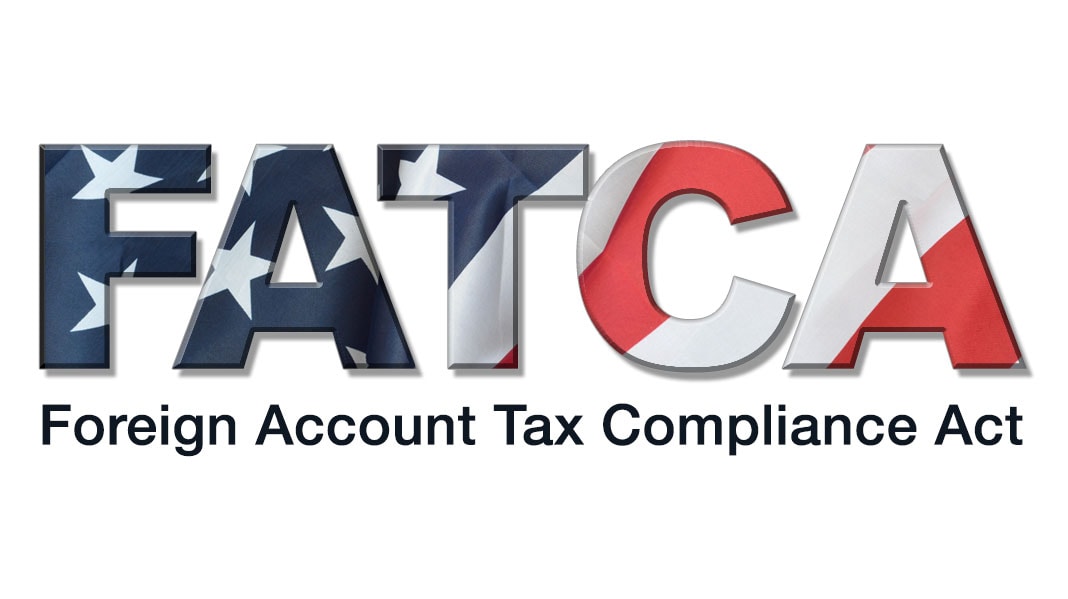
Expats should not count on banks keeping their offshore financial affairs secret any longer.
The tax authorities in Spain link to HMRC and other governments to swap data about foreign nationals who are tax resident elsewhere who control money or investments in Spain.
Similarly, the Common Reporting Standard (CRS) countries receive data from Spain’s tax authority about residents with offshore accounts and investments elsewhere.
Spain belongs to CRS and US-centric version, the Foreign Account Tax Compliance Act (FATCA).
Claiming state benefits
Retiring to Spain does not stop you claiming some state benefits that paid in the UK.
To check what is available, check out these two online tools:
- The British government guide to claiming benefits if you retire abroad
- UK benefits you can claim when retiring abroad
If you receive pension credit or housing benefit, these will stop four weeks after you make the move to Spain.
I have worked in Spain; do I get a Spanish benefits?
Anyone who has worked and paid social security contributions in Spain can claim some, if not all, of their benefit entitlements.
Those benefits include incapacity benefit and unemployment benefit.
The self-employed, or autónomo as they’re known, are unlikely to have made enough contributions to support a claim unemployment benefit while in Spain.
Some people cannot claim benefits despite having worked in the country and this may be because they haven’t paid enough national insurance.
In this situation, declare your UK contributions as these top-up Spanish contributions.
It is important to note that in Spain, you must make all applications for any benefit or pension claim in writing.
Claiming unemployment benefit in Spain
People can apply at an employment office for Spanish unemployment benefit if they have worked and paid national insurance contributions.
If you do not have enough in contributions to qualify for Spanish unemployment benefit, then you should declare any UK national insurance contributions as these will top up your claim.
To do this you’ll need a statement from HMRC of your contributions and you need to complete Form CA3916.
Can I claim Spain’s disability benefit?
The situation is like claiming Spanish unemployment benefit. Anyone wanting to claim incapacity benefit must make a claim at the INSS office.
Again, you will have to have paid enough national insurance contributions while working in Spain or the UK to make a disability claim.
You will need Form CA3916 from HMRC for claiming sickness benefit in Spain.
Are benefits means-tested in Spain?
In Spain, means-tested benefits are ‘Pensión de invalidez no contributiva’, or what are known in the UK as non-contributory invalidity pension.
There are strict criteria to determine eligibility for claiming the Spanish benefit. Claimants must be aged between 18 and 65 and have lived in the country for more than five years – two of those years must be prior to the claim.
Claimants must also have a low income and affected by either illness or a disability.
Expats Voting in Spain
You still have the right to vote in the UK and Spain once you have retired in Spain.
In Spain, you can stand as a candidate and vote in local elections.
To participate, register on the municipal roll (padron municipal) and electoral roll where you live.
As an overseas voter, you can vote in UK General Elections and Bye-Elections in the constituency where you last lived.
Currently, the 15-year rule restricts voting. The law allows expats to vote in elections for 15 years after leaving the UK.
The government has announced scrapping this rule, but no date is set for repealing the law.
Related Information
Below is a list of related articles you may find of interest.
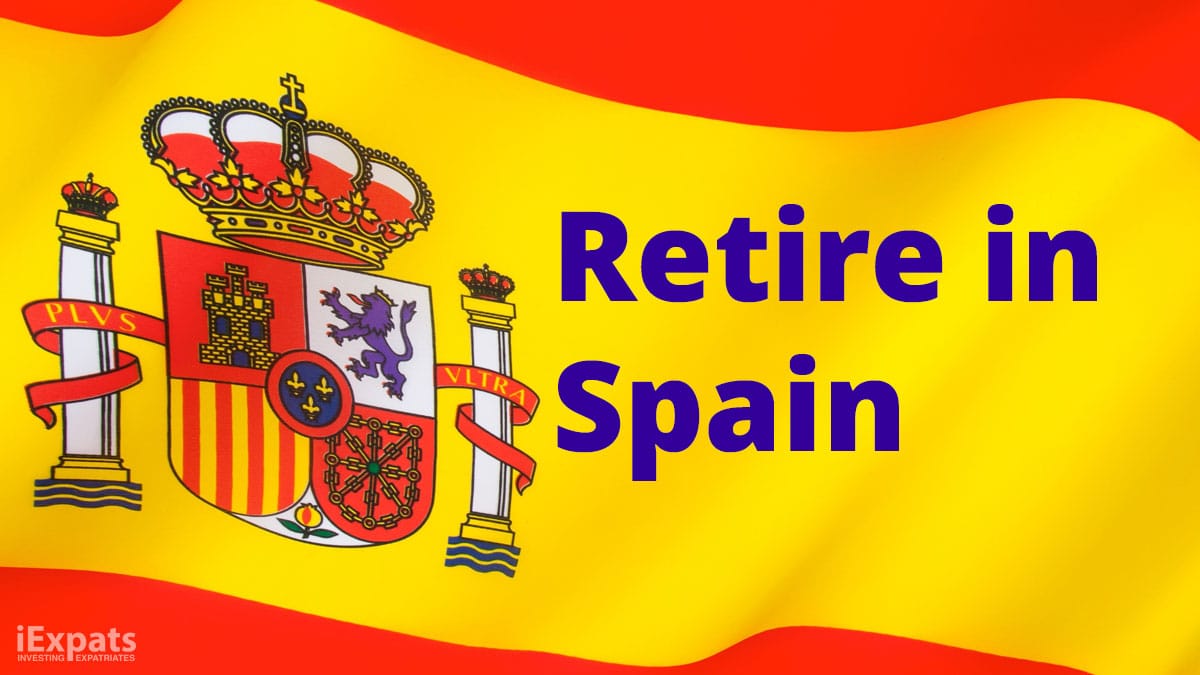
Good information very much appreciated. We are seriously considering moving to Spain permanently. We already own a property in Spain and therefore have NIE, bank accounts etc, we are not yet registered on the Padron, but will be doing so in the next couple of months.
My wife is registered disabled with a chronic illness and receives/has received PIP (formerly DLA) for many years, two questions:
1, We know we will still receive our state pensions. Will my wife still receive her PIP, she gets care allowance and mobility?
2, My wife is registered disabled, will she automatically receive a disabled (blue) badge, if not what has to be done in Spain to get one?
Rgds
Thank you for your message. I would recommend that you head on over to this link and fill out the form to get some advice from our experts. Thank you https://www.iexpats.com/get-advice/
This page needs updating, moving to Spain now will be much harder!